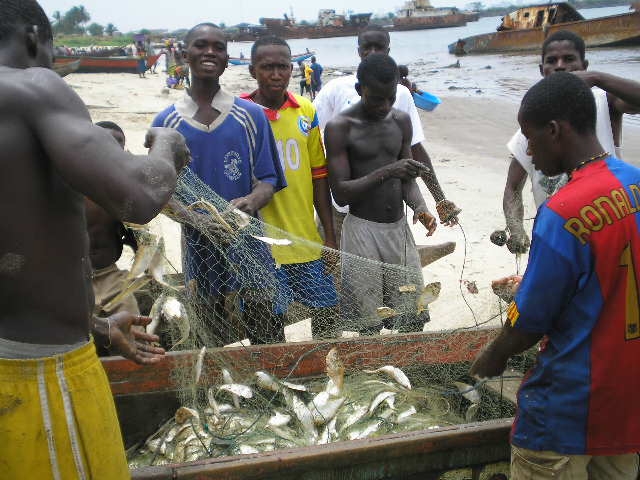By Teewon George Manakpalah|LPR News, Monrovia
The fishing sector of Liberia provides a means of employment and livelihood for many Liberians engaged on a full-time basis, and perhaps hundreds of thousands more on a part-time basis.
Many Liberians who are averagely low income earners have been actively engage with this sector and one governmental institution which is responsible to regulate the fishery sector of Liberia is the National Fisheries and Aquaculture Authority which was established by an act of legislature.
Making some disclosure about development within the fishery sector; the Deputy Director General for Administration at NaFAA Augustine Manoballah on Thursday March 5,2020 revealed that the entity has concluded arrangement with the government of Japan for the securing of 400 motors for fishing boat, and hundreds of modern sophisticated fishing nets.
Manoballah said the set of equipment which are expected to arrive in the country soon will ease the many burdens fishmongers across the country are beset with and will also enable them generate more resources from their businesses.
The NaFAA Deputy boss for administration told Liberia Public Radio that fishermen and smaller fish dealers will shortly benefit from micro loan that will smoothly enhance their business capacity.

He also outlined that for the first time since the end of the Liberian civil crisis, 50 fishermen have been trained and certificated by the National Fisheries and Aquaculture Authority which qualified them to work on international fishing vessels.
The lacks of infrastructure development, the failure of many local fishermen in paying their taxes, and the lack of logistics to enhance their operation across the country, Mr. Manoballah are some underlining issues that are posing serious challenges.
Experts say With infrastructure development in the fisheries sector, Liberia aims to be in a strong position to compete with its next-door neighbors; this would include huge export proceeds, and the signing of a fish access agreement through many bilateral arrangements.
It can be recalled that Liberia lost significant revenue as all of its 71 industrial tuna vessels must land to Cote d’Ivoire, Ghana, or Sierra Leone.
Also, all the country’s fish exports are then routed through these countries.
According to the Food and Agriculture Organization of the United Nations data, the Liberian fishery sector contribute about 3.2 percent to the GDP of the country and create job and income earning opportunities.






















